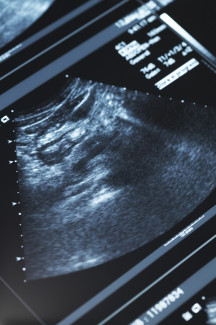
Johns Hopkins UniversityEst. 1876
America’s First Research University
Unnecessary Complications: A Discussion of the Tragedy of Obstetric Fistula

Tears for My Sisters: The Tragedy of Obstetric Fistula
L. Lewis Wall, MD, DPhil
Selina Okin Kim Conner Professor in Arts and Sciences
Professor of Anthropology, College of Arts and Sciences
Professor of Obstetrics & Gynecology, School of Medicine
Washington University in St. Louis
An obstetric fistula is a catastrophic childbirth injury in which the tissues that normally separate the bladder and the vagina are destroyed by prolonged obstructed labor. This leaves the afflicted woman hopelessly incontinent for the rest of her life, unless she can find a surgeon who can repair her injuries. Most women who develop obstetric fistulas are out of luck, because the resources to prevent and to treat them are both scarce and unevenly distributed around the world. Obstetric fistulas occur among the world’s destitute populations, not among the rich. People in the Western world are usually astonished to learn that such injuries are even possible, much less that they occur with alarming frequency among the world’s poorest women.
Childbirth in resource-rich countries like the United States is safer than at any time in human history, and injuries like obstetric fistulas are now extraordinarily rare in those countries with well-developed healthcare systems. The obstetrical success that wealthy nations have achieved over the last century has erased the knowledge of such injuries from our collective memory, yet 150 years ago death in childbirth and devastating childbirth injuries like obstetric fistulas were common, and ruined the lives of countless thousands of women. This is still the case in the poorest corners of the world.
I wrote Tears for My Sisters to help bring greater public awareness to the heart-wrenching reality of obstetric injury among the world’s poorest women. This is one of the great neglected issues in contemporary global social justice. The discrepancies in maternal health, death in childbirth, and obstetric injuries between the women of the world’s advanced industrial countries and those women who live among the “bottom billion” of the population is greater than almost any other public health indicator, yet the technical solutions to these problems have been known for over 75 years and could be implemented with available resources if the political will to do so existed. Unfortunately, the political will to provide adequate health-care to pregnant women does not yet exist in the countries where it is most needed. The result is a continuous parade of women needlessly marching along the road to maternal death and disability.

I first became aware of these issues while working as an anthropologist in northern Nigeria in the 1970s. Motivated largely by what I saw there, I returned to the United States and went to medical school, ultimately specializing in obstetrics, gynecology, and reconstructive pelvic surgery. This book is my attempt to describe for the general reader the “human obstetrical dilemma” and its implications. The evolutionary history of human reproduction has been a conflict between our producing large babies with large heads and our upright, bipedal form of locomotion, which places severe constraints on the architecture and capacity of the pelvis. The result has been the development of a very complicated mechanism by which the fetus descends through the birth canal, a process which is often complicated by prolonged, difficult, or obstructed labor. In the absence of effective interventions, the consequences can be calamitous.
Tears for My Sisters describes the biology of obstructed labor, traces the history of obstetric injury back to the earliest examples in ancient Egypt, details the history of how obstetrics tried to meet the technical challenges posed by difficult deliveries, and narrates the early history of obstetric fistula repair. The book describes the social setting in which these childbirth injuries occur today (using my experiences among the Hausa people of northern Nigeria as an example), details the delays that ultimately produce these childbirth injuries, and tells the inspiring story of Drs. Reginald and Catherine Hamlin, who devoted their professional lives to the care of these women in Ethiopia. The book makes the case that lack of access to competent, timely obstetric care is an urgent human rights issue for the women of the world. Every woman, no matter where she lives or what her social circumstances are, has a fundamental right to safe childbirth. Achieving this goal should be a priority for all people everywhere. Only public pressure will produce the political will necessary to effect such change around the world.
L. Lewis Wall, MD, DPhil, is the Selina Okin Kim Conner Professor in Arts and Sciences, a professor of anthropology, and a professor of obstetrics and gynecology at Washington University in St. Louis. He is author of Hausa Medicine: Illness and Well-Being in a West African Culture and the coauthor of Practical Urogynecology. Dr. Wall is also the author of Tears for My Sisters: The Tragedy of Obstetric Fistula


